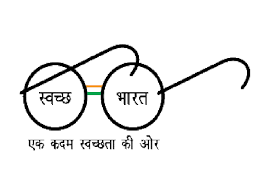EVs Drive Green Revolution in Urban Waste Collection Under Swachh Bharat Mission
The Guntur Municipal Corporation has deployed over 200 electric autos to replace diesel-fueled waste collection vehicles.

- Country:
- India
In a bold and innovative stride toward building a cleaner, greener, and smarter India, several Indian cities are revolutionizing urban waste management by integrating electric vehicles (EVs) into their door-to-door garbage collection systems. Under the umbrella of the Swachh Bharat Mission-Urban (SBM-U), this shift from traditional fuel-powered garbage trucks to zero-emission electric autos and e-rickshaws is a defining move in the country’s pursuit of Garbage-Free Cities and sustainable urban ecosystems.
Electric Vehicles: The Backbone of Greener Sanitation
Electric vehicles represent more than just a change in transportation—they symbolize a strategic shift in urban environmental policy, reducing air and noise pollution, cutting greenhouse gas emissions, and slashing operational costs. Cities like Guntur (Andhra Pradesh), Chennai (Tamil Nadu), and Indore (Madhya Pradesh) have emerged as national leaders in this transition, showcasing scalable models that blend clean mobility, digital tracking, and renewable energy.
Guntur: Pioneering Green Waste Collection with UNIDO Support
The Guntur Municipal Corporation has deployed over 200 electric autos to replace diesel-fueled waste collection vehicles. This initiative is supported by the United Nations Industrial Development Organization (UNIDO) and the Global Environment Facility (GEF) through the Sustainable Cities Integrated Approach Pilot (SCIAP).
Key highlights:
-
Coverage: 159.46 sq. km across the city
-
Annual diesel savings: Over 71,000 litres
-
Greenhouse gas reduction: 21,000 tonnes over 10 years
-
Technology: GPS-enabled autos for real-time tracking
-
Economic gains: Lower maintenance costs and longer lifespan
-
Social impact: Employment generation and service reliability
Guntur’s experience demonstrates how clean mobility and community-centric waste management can intersect to build resilient, eco-conscious cities.
Chennai: Largest E-Rickshaw Waste Fleet in the Nation
The Greater Chennai Corporation (GCC) has launched a fleet of 5,478 battery-operated electric rickshaws, servicing all 15 administrative zones of the city. Designed specifically for door-to-door garbage collection, each E-rickshaw is fitted with segregated bins for wet, dry, and hazardous waste, thus promoting source-level waste segregation.
Impact metrics:
-
Daily coverage: 24,621 streets and 2.1 million households
-
Carbon emission reduction: 41 tons per day or 15,160 tons annually
-
Operational range: 40 km per day per rickshaw
-
Employment: Over 6,000 individuals engaged
-
Awareness: Audio systems deliver waste management jingles and public messages
Chennai’s initiative not only addresses environmental challenges but also catalyzes public engagement and behavioural change in waste segregation, setting a benchmark in inclusive, tech-driven sanitation.
Indore: Combining EVs with Solar Energy and Smart Monitoring
Known for topping India’s cleanliness rankings, Indore continues its leadership by introducing 100 electric vehicles for garbage collection in key urban areas like Rajwada. The move replaces diesel-powered vehicles, cutting carbon emissions by an estimated 24,918 tons annually and saving nearly ₹5.97 crore per year in fuel and maintenance costs.
Innovative elements:
-
Integrated Command and Control Center (ICCC) enables GPS tracking
-
20 solar charging stations built, each with 10 kW solar panels
-
Green energy generation: 800–1000 units daily
-
Charging capacity: 80–100 vehicles per day
Indore’s model links renewable energy generation with clean mobility, exemplifying a circular urban economy and ensuring scalability with energy independence.
Toward Garbage-Free Cities: A National Movement
The integration of EVs into waste management is a milestone under SBM-U, reinforcing the mission’s core tenets of innovation, inclusivity, and environmental stewardship. By harnessing digital tools like real-time GPS, driving behavioural change through awareness systems, and tapping into global best practices, these Indian cities are setting a new benchmark for urban sustainability.
The convergence of electric mobility, smart monitoring, and renewable energy in solid waste management is a triple-win model—offering environmental, economic, and social returns. It also supports India's broader commitments to net-zero emissions, clean air action plans, and the Sustainable Development Goals (SDGs).
A Vision for Nationwide Replication
As Guntur, Chennai, and Indore lead by example, there is an urgent call to replicate and scale such models across the country. With financial incentives under SBM-U, support from international agencies, and growing technological innovation, India is well-positioned to become a global leader in eco-friendly urban waste systems.
ALSO READ
Youth: The Frontline Advocates for Climate Action
UNDP Secures $52.3M from GEF to Drive Global Climate and Biodiversity Action
HCLTech Empowers Climate Action: Announcing Winners of Climate Action Grant
Progress and Promise: Global Economies on the Path to Climate Action
British Chef Si King Highlights Climate Action for Mongolian Herders










